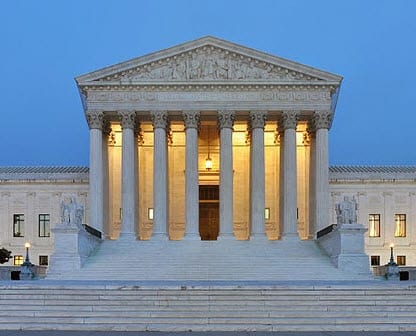 This month, the U.S. Supreme Court will begin litigation on the controversial Affordable Care Act. The federal law seeks to radically change the structure of the country’s health care industry and introduces new insurance regulations that are aimed at benefiting consumers. The Act was signed into law in 2010 and has since been a point of contention for political leaders and legislators throughout the U.S. Many states have backed the Affordable Care Act, but others have filed lawsuits against the federal government, accusing the law of being unconstitutional. The Supreme Court has released a timeline of the litigation process.
This month, the U.S. Supreme Court will begin litigation on the controversial Affordable Care Act. The federal law seeks to radically change the structure of the country’s health care industry and introduces new insurance regulations that are aimed at benefiting consumers. The Act was signed into law in 2010 and has since been a point of contention for political leaders and legislators throughout the U.S. Many states have backed the Affordable Care Act, but others have filed lawsuits against the federal government, accusing the law of being unconstitutional. The Supreme Court has released a timeline of the litigation process.
Hearings on the Affordable Care Act will begin on March 26. The first day of litigation will revolve around a specific provision of the health care law: A mandate that requires all U.S. citizens to purchase and maintain health insurance policies. The Supreme Court will hear oral arguments regarding the matter but is unlikely to decide the fate of the insurance mandate until a later date. The second day of litigation will focus on whether the law, as a whole, is compliant with the Constitution. On the third day, the Supreme Court will determine whether the law can survive without the inclusion of the insurance mandate provision.
Both the federal government and the states opposing the Affordable Care Act have agreed that the Supreme Court can rule on the insurance mandate before it is enacted in 2014. This may not be possible, however, because the Court cannot rule on tax laws until they are fully enacted, according to the Constitution. Though the Affordable Care Act is, essentially, a health care law, there are several tax reforms coming with it, which could make it untouchable to the Supreme Court for the time being.
